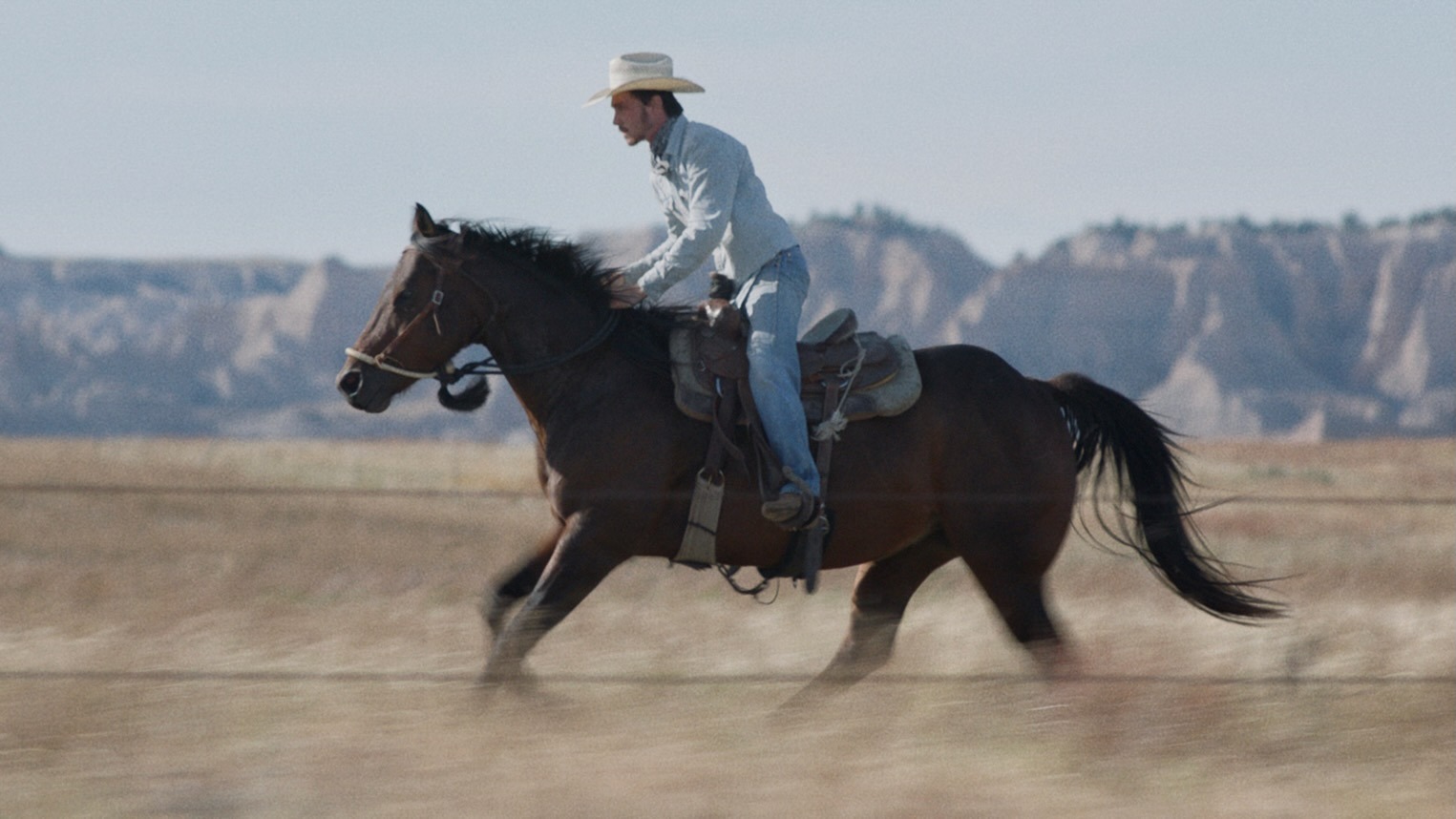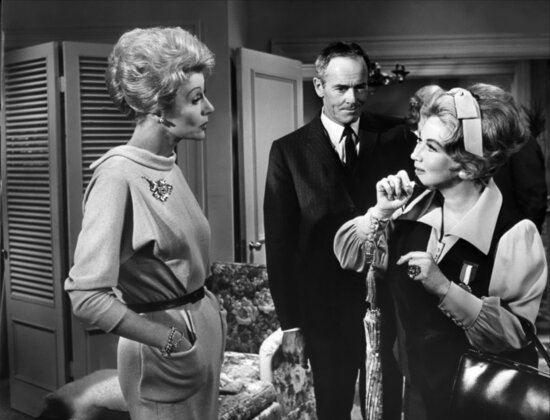A Dozen Under-the-Radar Movies for Decent Christian Viewing

Photo Credit: The Rider; image courtesy of Sony Pictures Classics from MovieStillsDB.com
Disclosure: This post may contain affiliate links, meaning Beautiful Christian Life LLC may get a commission if you decide to make a purchase through its links, at no cost to you.
Amid widespread restrictions and shuttered cinemas, the past several months have sent movie mavens scurrying for decent titles to watch at home.
This was especially true for me, as I spent much of that time finishing my new book, The Best Movies You Never Saw. It’s a collection of under-the-radar picks: indies, sleepers, silents, foreign-films, and little-known chestnuts from the Golden Age—along with more recent gems that somehow never caught on with critics or crowds.
Here are a dozen films from that volume specifically chosen for Christian viewers. While only a few of these are “faith-based” or overtly Christ-centered, they all rest on a solid moral framework, providing much to think about as we work to live biblically in a secular age.
1. Babette’s Feast (1987)
Babette’s Feast may be the best movie ever made on the grace of God; but this won’t be apparent at first.
Set in Jutland, the story involves a somewhat strict religious sect whose founder will not yield his two lovely daughters to any of their lovelorn young wooers. As years go by and their father passes on, the enclave grows smaller and more fractious—while the spinsters take in a French refugee named Babette Hersant. Much later, having come into some money, Babette decides to gift her long-time hosts a Parisian feast, including costly dishware, wines, and several sumptuous courses.
Fortunately, there is also an aging French general who—despite the sect’s legalistic fears of worldliness—is able to articulate the meal’s expression of love, both divine and human, and how it will unite and heal its celebrants, who are starving in more ways than one.
This film’s profound Christian message is so totally submerged in the story that you hardly even hear it till the end. Such restraint, nuance, and lack of preachiness is a lesson many faith-based films could take to heart.
103 min. Rated G. Currently available on Amazon Prime Video.
2. The Best Man (1964)

“There are no ends, Joe—only means. What really matters is how you do things, and how you treat people. Not some ideal goal for society.”
Thus says one retired president to a front-running candidate in 1964’s gripping political drama The Best Man, brilliantly scripted by novelist Gore Vidal.
Henry Fonda plays William Russell, a former secretary of state fighting for the presidential nomination. His principal opponent is Joe Cantwell (Cliff Robertson), who bills himself as a common man but is in fact so ruthless that eventually Russell must face the quintessential pol’s dilemma: How unscrupulous can you be in order to defeat an unscrupulous man?
While not exactly spiritual, The Best Man—which takes its title from the saying about who should win—remains relevant and thought-provoking in this key election year.
103 min. Not rated. Currently available for free viewing on YouTube.
3. Brad’s Status (2017)

This is a winsome, little-seen dramedy about a sad-sack father having a mid-life crisis while taking his son on a tour of the lad’s prospective college.
In one of Ben Stiller’s finest performances, the likable Brad keeps comparing his lowly slot in life to that of several old college chums who seem to be “all that”—but aren’t. Eventually the well-meaning father will have to reorient his thinking about status and success, thanks largely (and surprisingly) to three younger characters, including his own child. Co-starring Jenna Fischer, Luke Wilson and Michael Sheen.
102 min. Rated R for language. Currently available on YouTube.
4. Call Northside 777 (1948)

Based on a true story, this low-key black-and-white procedural stars James Stewart as a newspaper man going to bat for the modest Frank Wiecek who has done eleven years of a life sentence on what increasingly appear to be false charges (he’s accused of having gunned down a cop in 1932.)
Quiet, steady, and absorbing, the film is a lesson in persistence and selflessness, as the reluctant Stewart keeps on digging—even though Wiecek doesn’t want the case reopened for fear of the attention it might bring to his family. Call also frontlines parental devotion: For years Wiecek’s mother saved every penny scrubbing floors so she could offer a $5000 reward for Frank’s exoneration.
Yes, that actually happened.
107 min. Not rated. Currently available for free viewing on YouTube.
5. Children of Heaven (1997)
From acclaimed Iranian director Majid Majidi comes this beautifully acted drama about a Tehran family struggling to get by without much money. The central conflict kicks in when the young son loses his sister’s only pair of shoes. Since he also possesses just one set of sneakers—and because the kids fear telling their folks—the two must share the remaining footwear, literally taking school in shifts during the day.
Eliciting masterful performances from the kids, Majidi sweeps us into a child-like mindset where every small mishap becomes a catastrophe. The title suggests, on the one hand, how close to divine these children are in their simple-hearted kindness, and, on the other, that a benevolent deity is graciously watching over them—even if they don’t know it.
89 min. Rated PG for mild language. Currently available on YouTube.
6. The Fallen Idol (1948)

The great Catholic novelist Graham Greene adapted his own short story for this gripping melodrama about a kindly household butler who is idolized by young Philip, the family’s only child. But the affable manservant Baines is actually cheating on his wife with a much younger woman. When the man’s shrewish spouse accidentally dies in a household accident, young Phil—through some perfectly convincing plot mechanics—comes to believe that Baines did her in.
The lad’s resulting attempts to lie about his tainted hero just make matters worse and worse in this clever, suspenseful, and brilliantly acted tale that actually improves on Greene’s depressing story. Arguably the finest hour for British acting legend Ralph Richardson, who plays the titular figure.
95 min. Not rated. Currently available on YouTube.
7. For Heaven’s Sake (1926)

For Heaven’s Sake; image courtesy of Paramount Pictures from MovieStillsDB.com
Hard to speak highly enough about this dandy little silent comedy in which a pampered millionaire (Harold Lloyd) falls for a lovely lass who works in a soup kitchen—and does his selfless best to help with her unsteady clients. Available free on YouTube, For Heaven’s Sake boasts nonstop sight-gags, corny jokes, and jaw-dropping stunts. Best of all: Unlike a lot of slapstick, it doesn’t have a mean or hurtful bone in its body.
58 min. Not rated. Currently available for free viewing on YouTube.
8. Paul, Apostle of Christ (2018)

Perhaps the best in the recent spate of faith-based films, this quiet, meditative drama focuses on the final years in Paul’s life—after the book of Acts has closed, as the beloved apostle is languishing in a Roman prison while meeting with fellow disciple Luke (James Caviezel) and trying to counsel the city’s persecuted church. Deeply infused with hope in spite of Nero’s atrocities, Paul also features moving use of Scripture and peerless acting—especially from James Faulkner (Paul) and Olivier Martinez as a prison warden whose ailing daughter is going to need Luke’s help.
108 mins. Rated PG-13 for violence and disturbing images. Currently available on YouTube.
9. The Rider (2017)

Though this bracingly authentic film is rated R for language and drug use, it is ultimately a very spiritual story about living with brokenness. The Rider is the little-seen bio of modern-day rodeo-rider Brady Jandreau—a professing Christian who fought his way back to hope after a near-fatal injury in the ring. Jandreau plays himself, joined by his real-life father and comically opinionated autistic sister. I cannot recall any other film with such a touching, tender and truthful portrait of autism. Jandreau, incidentally, is fully Lakota Sioux—so as the actor himself has observed, that makes him both a cowboy and an Indian. Whoa.
104 min. Rated R. Currently available on YouTube.
10. Ride the High Country (1962)

This classic late-period Western wowed European critics, winning first prize at the Cannes Film Festival, but in America it didn’t catch on until much later. It’s an exciting, thoughtful, and handsomely filmed tale that pairs long-time Hollywood icons Joel McCrea and Randolph Scott (the latter in his final screen role) as two aging gunslingers escorting a shipment of gold.
With Scott’s unscrupulous Gil Westrum plotting to seize the stash himself, Ride becomes a sobering study in ethics, landing firmly on the side of doing what’s right. It also features a wildly surreal train-wreck of a wedding, a delicious co-starring performance from newcomer Mariette Hartley, and a grand old-fashioned shootout at the letter-perfect climax.
94 min. Not rated; some mature content—maybe not for kids. Currently available on YouTube.
11. Room for One More (1952)

This utterly charming true story stars Cary Grant and Betsy Drake (happily married in real life at the time) as hard-working parents who decide to supplement their brood of three by adopting two older kids—a surly teen girl and a crippled lad who is barely able to walk. Alternately comical and tear-inducing, with terrific interaction among the kids—especially George “Foghorn” Winslow as the scene-stealing “Teenie.”
Trivia note: Don’t be alarmed at the absence of “under God” from the Pledge of Allegiance; that phrase wasn’t added till two years after this movie came out!
95 min. Not rated. Currently available on YouTube.
12. Tokyo Story (1953)
This recasting of the American masterpiece Make Way for Tomorrow (1937) is considered the crowning achievement from revered Japanese filmmaker Yasujiro Ozu.
It concerns an elderly couple who visit their children in Tokyo; but the kids are all too busy to put forth any decent effort at hospitality, and the pair wind up quietly heading back home after seeing they aren’t wanted. Yet their dignity, selflessness, and even good cheer through all this is a wonder to behold—as is the kindness they receive from their widowed daughter-in-law, who has no idea what a difference her humble devotion has made.
Beautifully directed, with exquisite composition in every shot and potent use of symbols—particularly the train, which represents both the harmful industrialization of postwar Japan and the inexorable passage of time. Like most Japanese films, Tokyo Story will feel slow to Western viewers, but the final hour packs a real wallop. With a 100 percent rating at Rotten Tomatoes, it’s a virtually perfect picture.
136 min. Not rated. Currently available for free viewing on YouTube.
Happy viewing and watch for installment No. 2 in this series!

